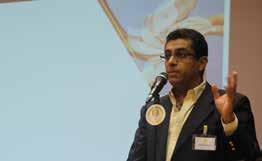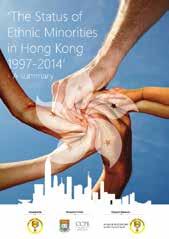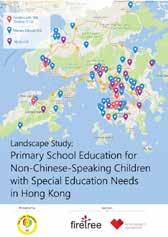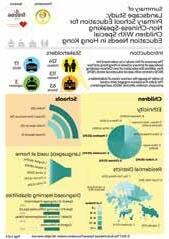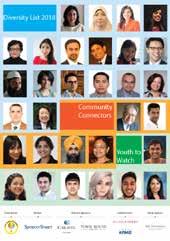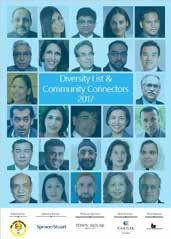ABOUT THE ZUBIN FOUNDATION
The Zubin Foundation is a leading social policy think tank and charity in Hong Kong, named after Zubin Mahtani Gidumal.
Our mission is to shed light on enduring barriers to fairness and opportunity. We engage with stakeholders to shape e ective solutions – both through policy recommendations and direct empowerment projects. Our work is centred around a spirit of collaboration and a rigorous commitment to positive, lasting outcomes.
As a registered charity in Hong Kong (IR 91/12344), we rely on donations from individuals, corporations and foundations to fund our work.
For more information, please visit: www.zubinfoundation.org or email info@zubinfoundation.org
Follow us on social media: Facebook: The Zubin Foundation | Twitter: @ZubinFoundation
DISCLAIMER
The information and ideas herein are the con dential, proprietary, sole, and exclusive property of The Zubin Mahtani Gidumal Foundation Limited. All information provided in this document is intended for discussion purposes only, and is not in the nature of advice. The Zubin Mahtani Gidumal Foundation Limited reserves the right to make alterations to any of its documents without notice. © 2018 The Zubin Mahtani Gidumal Foundation Limited. All rights reserved.
Contents
Our Work:
Special education needs
Kindergarten children
Youth
Youth leaders
Pakistani girls
Poverty and women
Financial Snapshot, 2015-2017
Problem Identi ed
Our Solutions
Our Interventions
Output
Impact
Problems are widespread
Ethnic minorities face problems in many areas of life, including education, employment, and access to housing. Yet, less than 1% of those who help the government address these issues are ethnic minorities themselves.
Inclusion of ethnic minority voices in decision-making
We need to increase the representation of ethnic minorities in government advisory committees so that their voices are heard and views considered.
Diversity List
To give the HKSARG a pre-screened list of ethnic minorities to sit on HKSARG advisory committees.
Town Halls
For senior government o cials to engage directly with ethnic minorities.
Diversity List 2016 & Diversity List 2017
120 nominations received from
8 ethnicities
38 candidates
Town Halls with:
Chief Secretary, Mrs Carrie Lam Cheif Secretary, Mr Matthew Cheung Secretary for Labour & Welfare, Dr CK Law
500 ethnic minorities residents
120 non-Chinese speaking children
Strengthened role of ethnic minorities in policymaking with
11
appointments to government advisory bodies.
Ethnic minorities engaged widely in public policy dialogue.
Ethnic minority voices elevated to highest levels of government. Awareness and commitment from senior policymakers — including HKSAR Chief Executive — to addressing chronic barriers to opportunity facing ethnic minorities.
Submissions to HKSARG
Views of ethnic minorities presented by written submission.
Policy recommendations for:
2016/2017 Policy Address
2017/2018 Policy Address
Population Policy Consultation
Discrimination Law Review Consultation
Establishment of Children’s Commission
Problem Identi ed Our Solutions Output Impact Our Interventions
Special education needs
Nearly 60% of non-Chinese speaking (NCS) children with special education needs (SEN) drop out between primary and secondary school.
We need to understand how primary schools cater to NCS children with SEN.
Stakeholder engagements with:
124 children from
113 families
17 NGOs
22 government/ aided schools
21 public special schools
19 international/ private schools
1private special school
3 legislators
2 overseas experts
Education Bureau
Published research: Landscape Study: Primary School Edcuation for Non-Chinese Speaking Children with Special Education Needs in Hong Kong
First-ever landscape study on ethnic minority children with SEN.
Awareness and commitment from Education Bureau to addressing the concerns. Meetings with Secretary for Education, Kevin Yeung and Undersecretary for Education, Christine Choi.
Policy recommendations:
Provide English speaking public school Press private schools to admit and accommodate SEN children Enhance accountability and transparency of primary schools for SEN children
Talks with EDB and relevant departments in progress
Kindergarten children
Ethnic minority students are at a language de cit in primary schools, and nd it di cult to catch up.
We need to understand if the language gap starts before primary school, or before kindergarten.
We need to then identify what can be done to address this de cit.
Stakeholder engagements with:
36 kindergartens across
8 geographical districts
Published research: Securing a Good Start for Chinese as an Additional Language For Kindergarten Students In progress
in progress
Problem Identi ed Our Solutions Output Impact Our Interventions
Youth
Despite being an important part of Hong Kong’s future workforce, most ethnic minority youth do not enjoy the high level of education and employment as their ethnically Chinese peers.
Many ethnic minorities in Hong Kong don’t want to be called “ethnic minorities”.
Ethnic minority youth leaders
There are many youth committees in Hong Kong, but most don’t include ethnic minority youth.
We need to understand what grassroots ethnic minority youth feel about their future, their barriers to opportunity, and how they want to be identi ed.
Engagements with:
253 youth aged 15-24, from 9 ethnicities
In progress
“Your Voice Your Choice”
Youth Engagement and Empowerment
in progress
Pakistani girls
Pakistani girls in Hong Kong do not enjoy the same level of education and employment as girls from other ethnic minority communities.
We need to identify high potential ethnic minority youth and give them opportunities and tools to achieve their career and life aspirations.
Understanding the aspirations of Pakistani girls in order to assist them in a culturally sensitive way.
In-depth interviews with:
Ethnic Minority Poverty and Assisting Women
Ethnic minority women face lower levels of education and employment than their Chinese counterparts. In addition, their families are more likely to su er from medical problems. Pakistanis in particular are 3 times more likely to be victims of poverty than their Chinese counterparts.
We need to help women lift their families out of poverty by addressing their concerns and by helping them with solutions regarding health, education and employment and others.
19 girls in progress
3 boys
In progress
Call Mira - A Helpline for South Asian Women and Girls
In progress
Dreams of Pakistani Children
Call

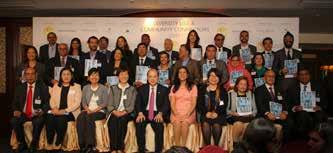
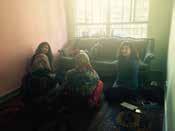
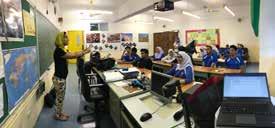
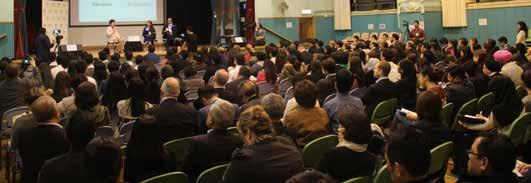
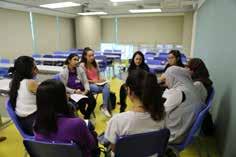



 Mr. Matthew Cheung, Chief Secretary of HKSARG, November 6, 2017
Mr. Matthew Cheung, Chief Secretary of HKSARG, November 6, 2017
